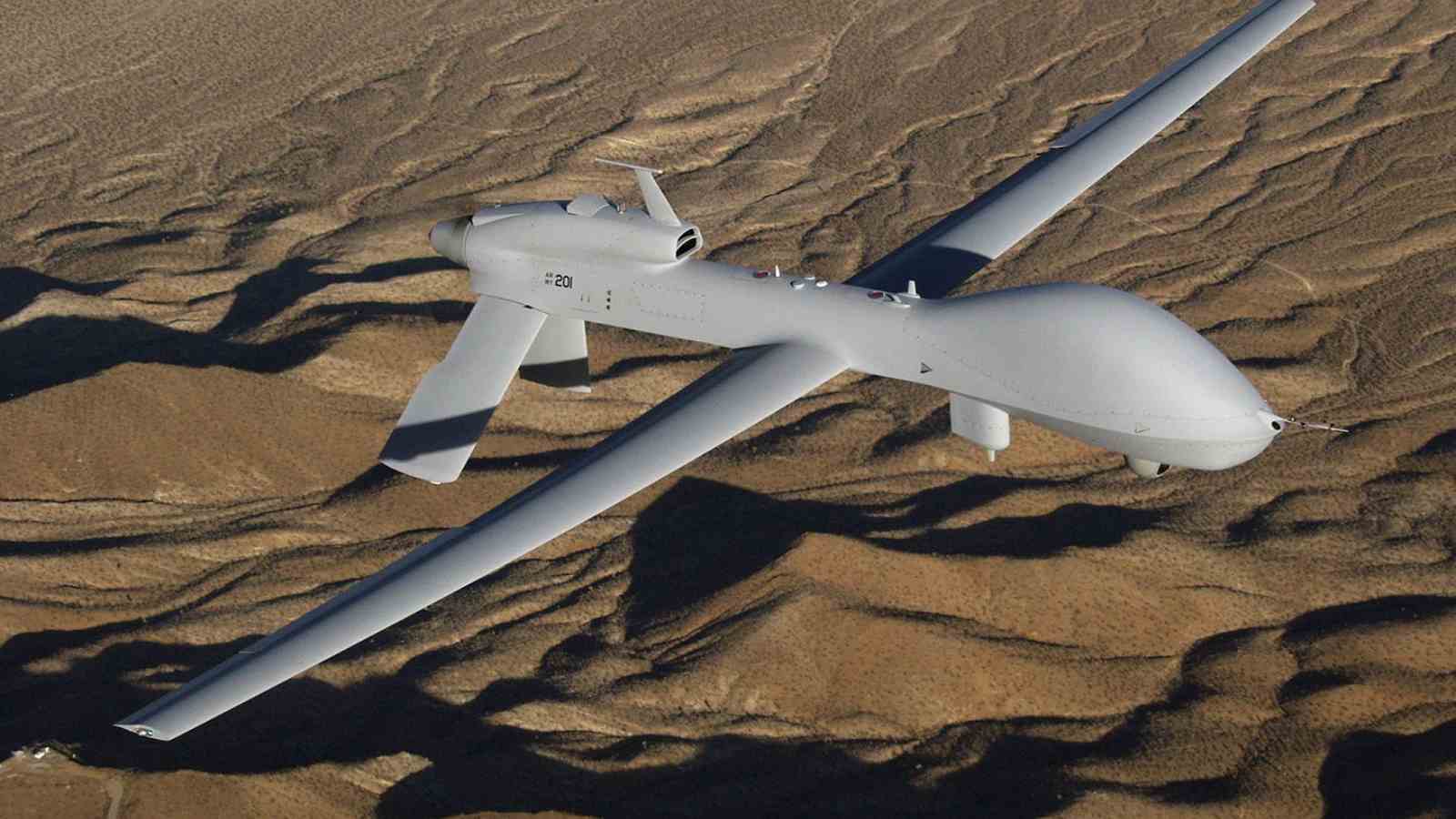Fast Track U.S. Drone Deal: The two significant defence agreements that Prime Minister Narendra Modi signed on his state visit to the US in June were as showy as they were substantive. These agreements included the transfer of technology to manufacture General Electric F-414 jet engines in India and the purchase of General Atomics MQ-9B drones. But those were declarations of purpose. Prior to Hindustan Aeronautics producing GE engines for the country’s MK-2 light combat aircraft or the tri-services introducing MQ-9B drones, these agreements must pass through normal political and bureaucratic red tape. They include careful and thorough discussions covering everything from costs to warranties to licencing and training.
This rigmarole is where a contract might become entangled in political issues. One example is Turkey’s protracted acquisition of F-16s, which began even before the country prevented Sweden from joining NATO. A major obstacle has been removed with the US Congress’s acceptance of the drone contract earlier this month. However, there are still a lot of checkpoints to be overcome before the agreement is finalised.
In a few months, India will begin its election campaign, to start with. The political executive’s focus will be, at most, brittle due to hustings. Furthermore, the Election Commission of India views important choices with disapproval even though they are nominally free from the model code of conduct for defence procurements. The US will be experiencing a similar cycle by the time a new administration takes office in New Delhi. It is therefore quite conceivable that this deal will be delayed until 2025 if neither party pays prompt attention to it.
Fast Track U.S. Drone Deal
It is difficult to exaggerate the strategic importance of these drones given the troubled eastern boundary. However, the timely conclusion of the drone contract presents the Modi government with another political opportunity.
The Modi government can engage in a mature dialogue with the Democrats for long-term interests by allowing the Biden administration to win over Indian-origin voters and using the agreement to appease Democratic Party critics who are upset about a variety of issues, from India’s defence ties with Russia to the alleged plot to kill Gurpatwant Singh Pannun.
M777 Howitzer Upgrade: General Manoj Pande To Talk Over During US Visit
US Elections And Trade With India
Indeed, local problems are the main focus of US elections. However, a vibrant diaspora has the power to influence American elections by bringing the current administration’s ties to their home country. Defence matters can be written off as being too arcane for voting decisions. Nonetheless, political messages are conveyed through signature projects, which is why they are often shown. In the US, candidates are aware of its political significance and make every effort to get the upper hand in every choice.
Consider the nuclear agreement between the US and India. Signed during Prime Minister Manmohan Singh’s 2005 visit to the US, the agreement wasn’t approved by Congress until October 2008, just weeks before the US presidential election.
The Republican front-runner for president, Senator John McCain, was eager to praise the Republican government while pointing out ways that his Democratic rivals, Barack Obama and Joe Biden, might have undone the agreement. The McCain team did not anticipate that Indian-American voters would be aware of the nuclear deal’s geopolitical implications. It was, nonetheless, a political declaration endorsing India.
Roughly 1% of US voters are Indian-American, and they have always had close links to the Democratic Party. But that loyalty is eroding bit by bit. Recent incidents have strained ties, especially among Indian-born Hindus who have become naturalised citizens.
These incidents include attacks on Hindu temples, assaults on students of Indian descent, separatist sentiment in Khalistan, and arson at Indian missions. A research from the Carnegie Endowment claims that the number of Indian-Americans in important swing states exceeded the electoral margin in 2016. Therefore, neither Biden nor Trump (should he secure the nomination) are able to dismiss them.
Despite the fact that the Trump administration first approved the drone contract, President Biden may take pride in it and reassure Indian-Americans that his administration is still committed to India’s defence and that it can cooperate with the Modi government in spite of ideological differences.
Conversation With Democrats in Congress
In the US, India has been a rare example of bipartisan achievement. Still, there is a sense of unease between the Modi administration and Congressional Democrats. They have been critical of the Indian government on a number of occasions, including the recent suspected conspiracy to kill Sikh separatist and US citizen Pannun, the government’s crackdown in Kashmir, the persecution of minorities, and the purchase of Russian oil. A meeting on Capitol Hill was called off by Foreign Minister S Jaishankar when Congresswoman Pramila Jayapal criticised the Indian government’s treatment of Kashmir following the revocation of Article 370.
This is just one instance of the many public displays of these divisions. More and more people believe that Congressmen of Indian descent, in both houses, are essential to US-India relations. Thus, in an unusual move, the Biden White House briefed five members of the US Congress on sensitive matters following the indictment of an Indian, Nikhil Gupta, in the Pannun case. It is not an option for the Modi government, which is aiming for a third term, to avoid interacting with its Democratic Party detractors.
India may create a favourable and auspicious impression that the Modi administration can collaborate with Democrats in the Senate and White House if the drone agreement is closed on time.
What are the reasons?
This would also stop the people who are against India’s relations with Russia—particularly the acquisition of oil and S-400 missile defence systems—from continuing to support false claims that Russia is India’s “number one friend.” For their own electoral advantage, this caucus can be moderated by allowing the Biden administration to declare success over the agreement and emphasise its ability to create long-term jobs in the US.
Undoubtedly, India’s diplomats won’t be able to win over every Democrat, particularly those on the far left of the progressive spectrum. The scenario is comparable to the political backing that Congress has given the Netanyahu administration in Israel. Still, the Israelis never back down from a conversation, even with left-leaning critics like Bernie Sanders. This deal’s joyful conclusion should just serve as another opportunity to interact in the future.
This drone purchase makes political sense in addition to its strategic advantages. Whether both parties cleverly take advantage of it or allow it to fester for months behind a mountain of red tape is still to be seen.



